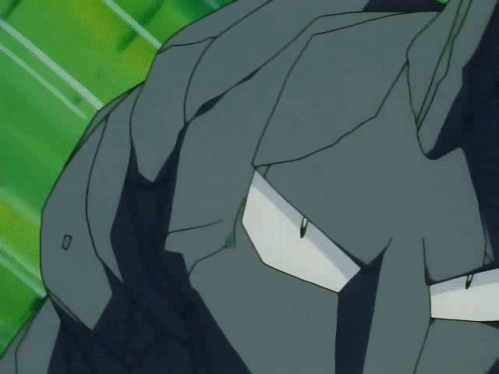
Aug 16, 2018 in Falsifiable, Physics, Quick Fix
One of the best things about taking physics classes is that the equations you learn are directly applicable to the real world. Every so often, while reading a book or watching a movie, I’m seized by the sudden urge to check it for plausibility. A few scratches on a piece of paper later and I will generally know one way or the other.
One of the most amusing things I’ve found doing this is that the people who come up with the statistics for Pokémon definitely don’t have any sort of education in physics.
Takes Onix. Onix is a rock/ground Pokémon renowned for its large size and sturdiness. Its physical statistics reflect this. It’s 8.8 metres (28’) long and 210kg (463lbs).

Surely such a large and tough Pokémon should be very, very dense, right? Density is such an important tactile cue for us. Don’t believe me? Pick up a large piece of solid medal. Its surprising weight will make you take it seriously.
Jul 22, 2018 in Advice, Literature, Model
For the uninitiated, Sanderson’s Law (technically, Sanderson’s First Law of Magic) is:
An author's ability to solve conflict with magic is DIRECTLY PROPORTIONAL to how well the reader understands said magic.
Brandon Sanderson wrote this law to help new writers come up with satisfying magical systems. But I think it’s applicable beyond magic. A recent experience has taught me that it’s especially applicable to fantasy cultures.
I recently read Sunset Mantle by Alter S. Reiss, a book that falls into one of my favourite fantasy sub-genres: hopeless siege tales.
Sunset Mantle is what’s called secondary world fantasy; it takes place in a world that doesn’t share a common history or culture (or even necessarily biosphere) with our own. Game of Thrones is secondary world fantasy, while Harry Potter is...
Apr 9, 2018 in Literature, Model
[Warning: Spoilers for Too Like the Lightning]
What marks writing as amateurish (and whether “amateurish” or “low-brow” works are worthy of awards) has been a topic of contention in the science fiction and fantasy community for the past few years, with the rise of Hugo slates and the various forms of “puppies”.
I’m not talking about the learning works of genuine amateurs. These aren’t stories that use big words for the sake of sounding smart (and at the cost of slowing down the stories), or over the top fanfiction-esque rip-offs of more established works (well, at least not since the Wheel of Time nomination in 2014). I’m talking about that subtler thing, the feeling that bubbles up from the deepest recesses of your brain and says “this story wasn’t written as well as it could be”.
I’ve been thinking about this a lot recently because about ¾ of...
Jun 19, 2017 in Advice, Literature
I identify so strongly as a person who writes daily that I sometimes find myself bowled over by the fact that I haven’t always done it.
Since my first attempt to write a novel (at age 13), I’ve known that I really enjoy writing. The problem was that I could never really get myself to write. I managed the occasional short story for a contest and I pulled off NaNoWriMo when I was 20, but even after that, writing remained something that happened almost at random. Even when I had something I really wanted to write it was a toss-up as to whether I would be able to sit down and get it on a page.
This continued for a while. Up until January 1st, 2015, I had written maybe 100,000 words. Since then, I’ve written something like 650,000. If your first million words suck – as is commonly...